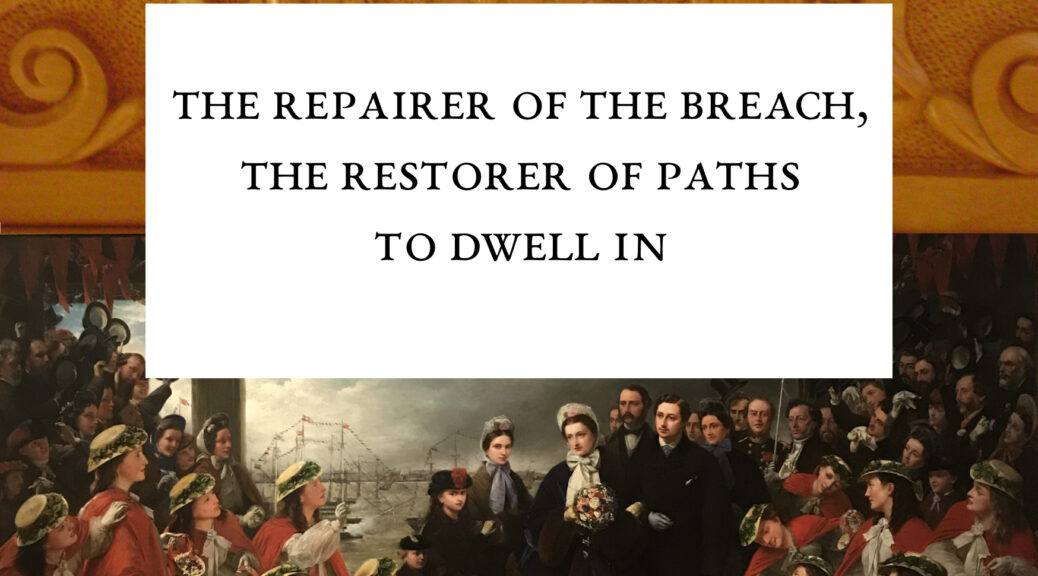Recently I heard that Gordon Fee had passed away. I saw Christians praising his theological work, so I thought it would be good to lay down a counter to this, and show the grave errors of Fee’s work.
One of the greatest compromisers who brought the enemy into the midst of the camp has been Gordon Fee. Gordon Fee, a Pentecostal theologian, has most famously written about “How to read the Bible for all its worth”. His other less known but equally misguided book is “How to choose a translation for all its worth”.
Besides various commentaries, Gordon Fee codified the entire unbelieving approach of modernist-influenced Evangelical-Pentecostal interpretation in his 1983 book “New Testament Exegesis”.
In reading the Bible, it needs to be interpreted. Fee’s approach is first to practice exegesis, which is to say, what did the transmitter intend to communicate. His second step is to practice the application and apply the relevance to the receiver. This would in some ways be acceptable. In Fee’s teachings, all of this comes under the broad unbelieving approach as tainted by modernist thinking called “hermeneutics”, which is to say, the field of study of modernist-influenced interpretation.
Let’s state two facts about the writing of Scripture, first that it is from God, and second that it was written by people at certain places at certain times. However, we cannot take a modernist-influenced view, which leans heavily towards natural elements and the human aspect, when in fact all things that exist in the natural are under the divine order of God. Pure modernism is purely naturalistic, which is not, of course, as far as Fee (and much of modern evangelical-Pentecostalism) has slidden.
Fee’s view, like much of modernist-influenced “orthodox evangelicalism”, exists between true belief and unbelief or Infidelity. As if to fulfil the very warning to the Laodicean Church, much of such theology exists in a middling, lukewarm place, that is neither cold nor hot. In this place we find people who do believe in Christ, who are probably saved, yet who have slipped not only in individual doctrines (whether it be on creation, Bible version and translation accuracy, Bible prophecy understanding, etc.) but more importantly on the very overarching approach and understanding of theology, Christian “philosophy”, the full counsel of God, universal learning, pansophy and attaining of wise counsel itself.
When you begin from “we cannot know the full truth because we are sinful, fallible, limited beings” type foundation, you are already defying myriads of scriptures and the work of the Holy Ghost Himself!
So then, Gordon Fee had a view about how to understand Scripture laced with the unbelieving leaven of naturalistic, human-based Enlightenment philosophy. And further, he taught his method, even as he had learned it from a variety of more advanced unbelieving masters (including the notorious Karl Barth).
In fact, Fee was just the latest espouser of unbelief drawn from a long line of compromisers with the German Rationalistic Unbelief (i.e. theological influenza).
To take a brief excursus, the modernistic error, known as “Biblical hermeneutics”, arose in the late 18th century, with the text-based Grammatical School of J. A. Ernesti, and the Historical School of J. S. Semler.
These German schools of thought deviated from proper interpretation in two ways. The Grammatical placed emphasis upon words in a robotic fashion (and ultimately in the original languages, therefore not in the received vernacular that Protestants had so long strived to provide), while the Historical practised historical revisionism by trying to read the Scripture in light of its contemporary audience (as Noah Webster himself indicated that since the early writers were ignorant of geography, then geographical statements were indicative of their ignorance, and scripture certainly not to be taken as ultimate truth).
These were men who were thoroughly infected with Deism and French Infidelity!
The rationalist German theologian Karl A. G. Keil followed Ernesti, and sought to read the Bible like any other book, but in the light of the Higher Critical ideas of Semler. This led to a mediation of both schools of thought to form the Historical-Grammatical School.
Schleiermacher, a theologian at the beginning of the 19th century, tried to accommodate the rationalist view while rejecting its excesses. In 1834, the two schools were drawn together in a new, eclectic position under the guidance of Schleiermacher (the father of Modern Liberal Theology).
The Swiss theologian Cellerier attempted to formalise the Grammatico-Historical School (1852), though his work was so tainted by the unbelief of German Criticism that Fairbairn criticised it, but the influence filtered through. And so the virus spread: Fairbairn (1859), Doedes (1862), Immer (1877), after which came Farrar (1886), Terry (1890), Tenney (1957), Mickelsen (1963), Ramm (1967), Berkhof (1969), Kaiser (1981), Fee (1983), Carson (1984), Moo (1986), Osborne (1991), Tate (1991), Zuck (1991), Klein (1993), Silva (1994), etc.
Sitting down the line in this unillustrious company was none other than Gordon Fee, who had learned somewhat poorly from his masters, for Fee wrongly called the application of Scripture “hermeneutics”, which in fact was the term to be used for the entire science and art of interpretation of Scripture.
Therefore, we are left with two positions, either the believing interpretation of Scripture or the art and science of hermeneutics. Essentially hermeneutics is in contradiction to believing interpretation.
Now in brief, because of the unbelief and assumptions of Infidelity, Fee and many other Christians were adamant that there was no exact text or textual reconstruction of Scripture, likewise that there was no precise translation of Scripture. There was not, in their view, one final English Bible, nor could there be.
Modernism says you can choose your translation, which slips too often to post-modernism which is, I will make the scripture say what I wish it to say (and I will chose a translation accordingly). Once on the slippery slope, people like Fee had no everlasting arms upon which to rely in order to stop the full slide into humanistic atheism.
So when these people say that the culture of Bible times differs to our own, we may easily counter: the Holy Ghost was communicating truth to us when the Scripture was written. The Bible was written for us, not merely for the contemporary audience. The Holy Ghost is able to communicate to us today, and the Scripture has been designed as such. In fact, in whatever was written, the Holy Ghost had us, future believers, in mind! (That’s what Paul said.)
This comes to a greater view, that Scripture not only was prewritten by God in Heaven before it was ever inspired on Earth, which itself counters all the unbelieving interpretation-clouding imposed by modernistic hermeneuticists, but in fact, Scripture existed in the mind of God before, beyond and outside of all creation.
That’s why I believe in the manifestation in history of a perfect 66 book Bible version, translation and edition. I believe that this answers inside of creation to the concept of the perfect God having the full knowledge of the perfect Scripture outside of these temporal bounds.
When Jesus said “Ye shall know the truth” (John 8:32), He really meant it. He actually meant it in two ways. First that we should know or have the perfect Scripture ultimately before the end of creation come about. And second, that the Holy Ghost speaks to each person to have them be the best dispenser of the love of God they can be, as manifested in the grown up Church (see the Book of Ephesians throughout).
There is no limit on advancing to perfectibility, because the enemies of Christ are through time being made His footstool (see Psalm 110). Therefore, there are two works of God through history. One is the work of His perfect word and it being made known to the nations. This is what the Historicist interpretation of the first half of Revelation is all about. The other is that His work is in perfecting the saints, the perfectly functioning Church, which is seen in the victory of the saints in the second half of the Book of Revelation.
Gordon Fee did not believe in the perfect text, perfect translation or perfect interpretation. He was of a whole panoply which is intrinsically against ultimate perfection.
I believe a mighty and spiritual hail is coming to destroy all such unbelief, Infidelity and Left-wing ideology.
I believe in the day of visitation and the latter days glory of the saints.
A wise man will hear, and will increase learning; and a man of understanding shall attain unto wise counsels:
To understand a proverb, and the interpretation; the words of the wise, and their dark sayings.
(Proverbs 1:5, 6).
Have not I written to thee excellent things in counsels and knowledge,
That I might make thee know the certainty of the words of truth; that thou mightest answer the words of truth to them that send unto thee?
(Proverbs 22:20, 21).






